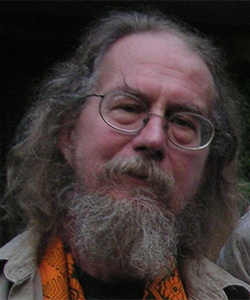The Trans-Himalayan/Sino-Tibetan Languages
Presenters: Scott DeLancey
BTFD2
This workshop will present a typological and historical overview of the Trans-Himalayan (or Sino-Tibetan) language family. This large and remarkably diverse family consists of (at least) seven Sinitic languages spoken in China and emigrant communities, and several hundred languages traditionally labelled “Tibeto-Burman” (although this now appears to be a paraphyletic grouping) spoken primarily in the mountainous areas separating East, Southeast, South and Inner Asia. The first part of the workshop will present an overview of the TH languages and their typological diversity, a tentative classification of the family, and some discussion of the geographical and historical context which has led to their diversity.
The main part of the workshop will concentrate on several phenomena of broader typological interest, specifically three interrelated problems having to do with alignment, person, and information structure. Problems of “alignment” include differential case marking and case marking patterns not clearly identifiable as accusative or ergative, and hierarchical or “inverse” argument indexation in the verb. The latter connects to interesting problems of person, and will lead to investigation of the history of clusivity and other phenomena in pronominal paradigms. Case-marking phenomena relate directly to issues of the grammar of information structure, particularly zero anaphora (“pro-drop”) and paradigms, sometimes quite elaborate, of information structure markers. We will also discuss, in less detail, tonogensis, nominalization, and a few other interesting phenomena.
Finally we will devote one or two sessions to the current social and political situation of the various languages, briefly outlining issues of language endangerment, attrition, and maintenance in minority languages across the Trans-Himalayan area.
Keywords: Typology, Phonology, Morphosyntax, Sociolinguistics, Areas/Families/Clades, Ergativity, Information Structure, Language Contact, Language Endangerment
Room STB 254, Tuesdays and Fridays, July 8-August 8, 2:30pm - 3:50pm
Tuesdays and Fridays
Presenters

University of Oregon
Scott DeLancey is Professor Emeritus of Linguistics at the University of Oregon. He is a specialist in Tibeto-Burman languages, especially of Northeast India, Myanmar, and Nepal. Besides descriptive and comparative/historical work on these languages, he has published extensively on topics in linguistic typology related to his descriptive and historical work, including ergative syntax, evidentiality and mirativity, and “hierarchical” verb agreement. He has worked with Native American tribes in Oregon in language revitalization projects, and in Northeast India with local linguists to promote documentation and description of the 150+ “tribal” languages of the region
Room STB 254, Tuesdays and Fridays, July 8-August 8, 2:30pm - 3:50pm
Tuesdays and Fridays
